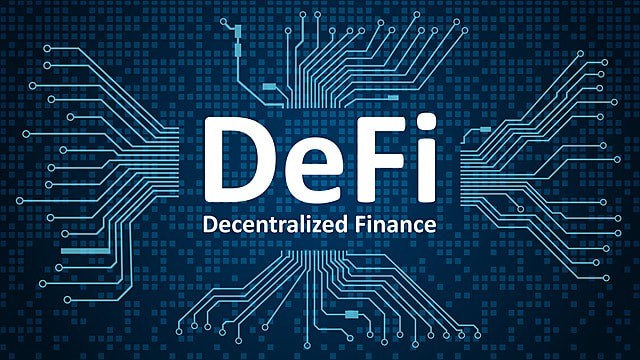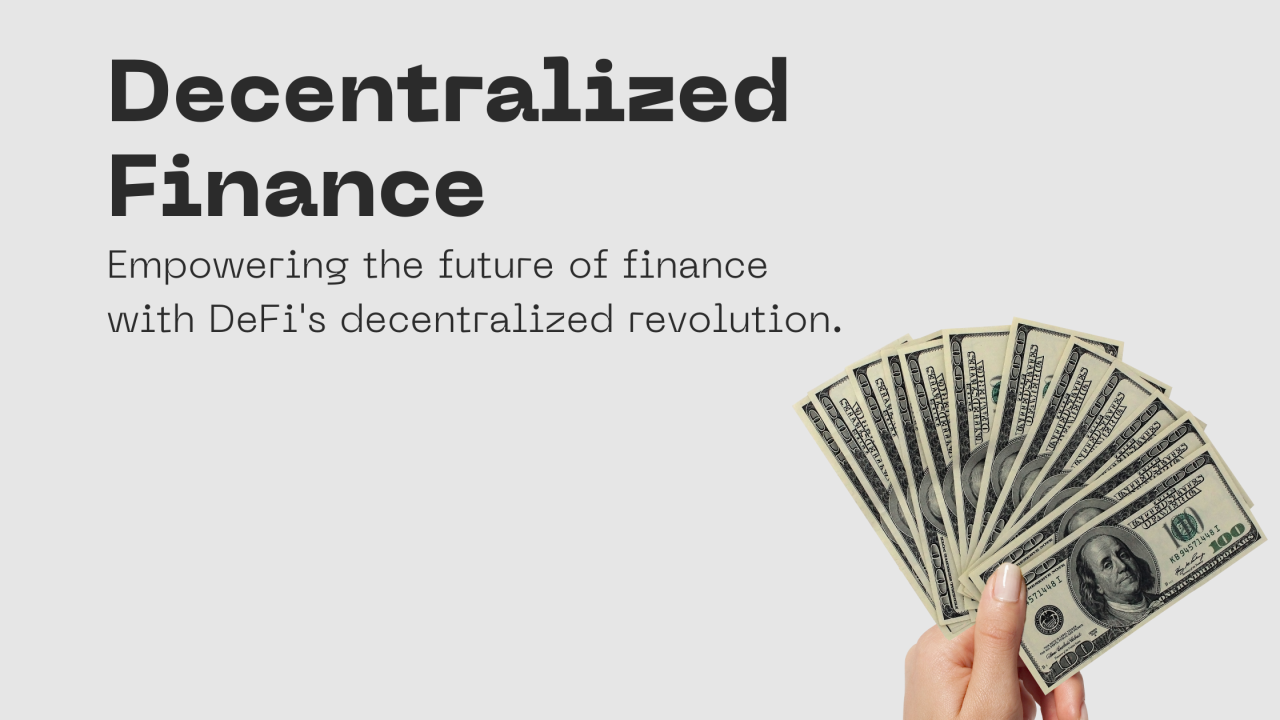If you are looking to unlock the potential of Defi crypto loans, now is the time to take action. With the lending market booming, more and more people are turning to Defi platforms to secure their financial future. These platforms offer a unique opportunity to borrow and lend cryptocurrency, providing borrowers with a self-repaying loan and lenders with the chance to earn passive income.
Unlike traditional lending platforms, Defi loans are not forced to comply with strict terms and conditions. Instead, borrowers and lenders negotiate their own terms, allowing for more flexibility and independence. Furthermore, the use of smart contracts ensures that loans are self-repaying, reducing the risk of default and potential losses for lenders.
For investors, Defi crypto loans offer a way to leverage their cryptocurrency holdings and access liquidity without having to sell their assets. By borrowing against their crypto, investors can continue to benefit from potential gains in the market while still having access to funds for other investment opportunities or personal expenses. Additionally, unlike traditional loans, Defi loans are not taxed as they are considered property transfers rather than income.
When considering a Defi loan, it is important to research and choose a reputable provider. Look for platforms with a top-notch security system, transparent fees, and a user-friendly website. Take the time to understand the terms and conditions of the loan, including interest rates and potential liquidation requirements. With proper research and a good understanding of how Defi crypto loans work, you can unlock the full potential of this innovative financial tool and secure your financial future.
Self-repaying loans
Self-repaying loans are an innovative concept in the world of decentralized finance (DeFi) and crypto lending. Unlike traditional loans, where borrowers are responsible for making regular payments to repay the loan, self-repaying loans utilize smart contracts and automated processes to repay the loan on behalf of the borrower.
This means that borrowers do not have to worry about manually making loan repayments or facing the risk of default. The self-repaying loan system is designed to automatically deduct the loan amount, including any interest or fees, from the borrower’s account on a predetermined schedule.
One of the key advantages of self-repaying loans is that they reduce the risk of losses for lenders. Since the loan is repaid automatically, lenders are less likely to experience defaults or late payments, which can result in financial losses. Additionally, self-repaying loans can help borrowers maintain a good credit score and avoid potential penalties or negative impacts on their financial reputation.
Another benefit of self-repaying loans is the potential for investors to earn passive income. By providing funds for self-repaying loans, investors can earn interest on their investment without the need for active management or monitoring. This makes self-repaying loans an attractive option for those looking to grow their wealth and secure their financial future.
How self-repaying loans work

Self-repaying loans function by utilizing smart contracts and blockchain technology. When a borrower applies for a self-repaying loan on a DeFi lending platform, the loan terms and conditions are automatically coded into a smart contract.
Once the loan is approved, the smart contract takes over and ensures that the loan is repaid based on the predetermined repayment schedule. The borrower’s account is automatically debited for the loan repayment amount, including any interest or fees, at the specified intervals.
Since self-repaying loans operate on decentralized platforms, they are not governed by a central authority. This means that borrowers can access loans without going through the traditional banking system. Additionally, borrowers can enjoy flexible loan terms and competitive interest rates offered by different lending platforms.
Before making a decision to take out a self-repaying loan, it is recommended to do thorough research and understand the terms and conditions provided by the lending platform. Each platform may have different fees, loan repayment terms, and interest rates, so it is important to compare options and choose the one that best suits your financial goals.
Forced liquidation
Forced liquidation is an important concept in the realm of decentralized finance (Defi) crypto loans. When users borrow funds from a lending platform, they are required to put up collateral, typically in the form of cryptocurrency. The collateral serves as a security measure to protect lenders in the event of a borrower’s default on their loan.
However, if the value of the collateral drops significantly, the lending platform may initiate a forced liquidation process. This means that the platform can sell off the borrower’s collateral to repay the outstanding loan amount, ensuring that lenders are not at risk of losing their funds.
During a forced liquidation, the lending platform will sell the borrower’s collateral at a discounted rate to recover the outstanding debt. The proceeds from the sale are then used to repay the lenders, covering both the principal loan amount and any fees or interest incurred.
It is important for borrowers to carefully consider the potential risks involved in borrowing loans in the Defi space. They should conduct thorough research on the lending platforms they wish to use, understanding their lending terms, fees, and potential liquidation procedures. Additionally, borrowers should carefully assess their own financial situation and the stability of the cryptocurrency they plan to use as collateral.
How are crypto loans taxed

When it comes to crypto loans, the tax implications can be complex and vary depending on the jurisdiction. It is important for investors to understand how these loans are taxed in order to make informed decisions about their financial future.
First, it’s important to note that crypto loans are considered a form of borrowing. In most cases, the borrower receives the loan in cryptocurrency, such as Bitcoin or Ethereum, and uses it for various purposes, like investing or making purchases. However, unlike traditional loans, crypto loans are typically offered by decentralized finance (DeFi) platforms, independent of a traditional financial institution.
One important aspect to consider is that the interest rates on crypto loans can be higher than traditional loans. This is because the crypto market is volatile and lenders need to account for potential losses. Additionally, these loans are often self-repaying, meaning the borrower will earn interest on their crypto assets, which will be used to pay back the loan.
When it comes to taxation, any gains made from lending your cryptocurrency can be subject to taxes. The interest earned from crypto loans should be considered as income and may be subject to income tax. On the other hand, any losses incurred from lending may be considered as a tax deduction.
It’s important to note that tax laws and regulations surrounding cryptocurrency can vary greatly between jurisdictions. It is recommended to consult a tax professional or do thorough research to ensure compliance with local tax laws.
In conclusion, while crypto loans offer the potential for high returns and financial independence, it’s important to understand the tax implications. It is crucial to research and consider the potential gains, losses, and tax requirements before making a decision to participate in these lending platforms.
The Top 10 DeFi Lending Platforms

DeFi lending platforms have gained popularity in the crypto space. These platforms allow investors to unlock the potential of their cryptocurrency assets by borrowing or lending them. Here are 10 of the top platforms that provide these services:
- Compound – Compound is a leading DeFi lending protocol that allows users to borrow or lend various cryptocurrencies. It offers competitive interest rates and allows borrowers to use their borrowed funds as collateral.
- Aave – Aave is another popular DeFi lending platform that offers a wide range of borrowing and lending options. It utilizes a pool-based lending model and allows users to earn interest on their deposited assets.
- MakerDAO – MakerDAO is a decentralized lending platform that issues the DAI stablecoin. Users can deposit collateral and borrow DAI, which is backed by the deposited assets.
- InstaDApp – InstaDApp is an aggregator platform that allows users to access multiple DeFi lending platforms through a single interface. It simplifies the borrowing and lending process and offers competitive interest rates.
- dydx – dydx is a decentralized exchange and lending platform that allows users to lend, borrow, and trade various cryptocurrencies. It offers margin trading and has a user-friendly interface.
- Nexo – Nexo is a centralized lending platform that allows users to borrow against their cryptocurrency assets. It offers instant loans and supports multiple fiat and cryptocurrency assets.
- BlockFi – BlockFi is a centralized lending provider that offers crypto-backed loans. Users can borrow against their crypto holdings and earn interest on their deposit.
- Cream Finance – Cream Finance is a decentralized lending platform that offers borrowing and lending services for various cryptocurrencies. It utilizes a liquidity pool model and offers competitive interest rates.
- Yield Protocol – Yield Protocol is a DeFi lending platform that allows users to take out fixed-rate loans against their cryptocurrency assets. It offers transparent and predictable terms for borrowers and lenders.
- YetiSwap – YetiSwap is a decentralized lending platform that allows users to lend and borrow various cryptocurrencies. It offers a user-friendly interface and competitive interest rates.
When choosing a DeFi lending platform, investors should do thorough research and consider their financial goals and risk tolerance. It’s important to understand the terms and fees associated with the platform, as well as the potential gains and losses. Additionally, investors should be aware of the risks associated with liquidation and forced debt repayment. Lastly, it’s always advisable to make independent decisions and seek professional advice if needed.
Failure to pay back the loan

When borrowers fail to pay back their crypto loans, they can face serious consequences. This is a top concern for lenders and investors in the emerging field of decentralized finance (Defi). If a borrower defaults on their loan, they could potentially lose their collateral and any gains they have made from their investment.
Unlike traditional lending platforms, Defi platforms are independent and do not require any intermediaries. This means that borrowers and lenders can transact directly with each other, without the need for a third party. However, this also means that there is no one to enforce the terms of the loan and ensure that the borrower repays the loan on time.
One way to address this issue is through self-repaying loans. In a self-repaying loan, the borrower’s cryptocurrency is held in a smart contract that automatically deducts the loan payment from the borrower’s account. This allows the borrower to earn interest on their investment while ensuring that they pay back the loan on time.
In the event of a borrower’s failure to pay back the loan, the platform may be forced to liquidate the borrower’s collateral to cover the losses. This can result in the borrower losing more than just their investment, as they may also be taxed on any gains they have made from their investment.
Before deciding to take out a crypto loan, it is important to thoroughly research the terms and fees associated with the loan. Different lending platforms offer different rates and fees, so borrowers should compare their options and choose a provider that best suits their financial needs. It is also recommended to read reviews and testimonials from other borrowers to ensure the platform is trustworthy and reliable.
In conclusion, failure to pay back a crypto loan can have serious consequences for both borrowers and lenders. It is crucial for borrowers to understand the terms and risks associated with the loan before making a decision. By conducting thorough research and choosing a reputable lending platform, borrowers can secure their financial future and unlock the potential of Defi crypto loans.
Crypto loan fees
When it comes to crypto loans, one of the key factors that borrowers and investors should consider are the rates and fees associated with these loans. Just like any other financial decision, understanding the terms and costs involved is essential for making an informed decision.
Forced liquidation fees: Crypto lending platforms often implement forced liquidations to mitigate potential losses for lenders. In the event of a borrower’s failure to repay their loan, the platform may force the liquidation of the borrower’s cryptocurrency assets to cover any outstanding debt. Borrowers should be aware of the forced liquidation fees that may be charged in such situations.
Top-up fees: Some platforms may charge borrowers fees for topping up their existing loan amount. This allows borrowers to increase their borrowing capacity by adding additional collateral. It’s important to understand the top-up fees associated with a platform before deciding to increase your loan amount.
Loan origination fees: When borrowing from a crypto lending platform, borrowers may be required to pay loan origination fees. These fees are typically charged as a percentage of the total loan amount and cover the costs associated with processing and approving the loan. It’s important to factor in these fees when considering the potential gains and risks of taking out a loan.
Self-repaying loan fees: Some platforms offer self-repaying loans, where borrowers’ loan repayments are automatically deducted from their cryptocurrency holdings. In such cases, borrowers should understand the fees associated with this self-repaying feature, as it could impact the overall cost of the loan.
Understanding the various fees associated with crypto lending platforms is crucial for both borrowers and investors. By knowing how these fees work, borrowers can make informed decisions about borrowing and investing, while investors can assess potential gains and risks. It’s important to research and compare different platforms to find the one that aligns with your financial goals and preferences.
Frequently Asked Questions:
How do crypto loan fees work?
Crypto loan fees are typically determined by the platform offering the loan and can vary based on factors such as the loan amount, duration, and the borrower’s creditworthiness. These fees can be a percentage of the loan amount or a fixed amount, and are meant to compensate the lender for the risk they are taking by lending out their crypto assets.
How are crypto loans taxed?
The taxation of crypto loans can vary depending on the jurisdiction. Generally, if you borrow crypto and use it for personal purposes, it is not considered taxable income. However, if you earn interest or fees from lending out your crypto assets, these earnings may be subject to income tax. It is important to consult with a tax professional or research the specific tax laws in your country to understand how crypto loans are taxed.
What happens if I fail to pay back a crypto loan?
If you fail to pay back a crypto loan, the consequences can vary depending on the platform and the terms of the loan. In some cases, you may incur additional fees or penalties, and your collateral may be seized by the lender. This could result in the loss of your crypto assets. It is important to carefully read and understand the terms and conditions of the loan before borrowing, and to only borrow an amount that you are confident you can repay.
What are self-repaying loans in the context of DeFi?
Self-repaying loans in the context of DeFi refer to loans that are automatically repaid through smart contracts. These loans are designed to eliminate the need for manual repayment and give borrowers peace of mind knowing that their loan will be repaid without any additional effort. The repayment is typically done using the borrower’s collateral, which is automatically liquidated if the loan is not repaid by a specified date.
Video:
START HERE TO MASTER DEFI!
Decentralised Finance: Complete DeFi Overview & Outlook
BlackRock CEO Larry Fink SECRETLY INVESTING in Ethereum & 5 Crypto Coins



If you are looking to unlock the potential of Defi crypto loans, now is the time to take action. With the lending market booming, more and more people are turning to Defi platforms to secure their financial future. These platforms offer a unique opportunity to borrow and lend cryptocurrency, providing borrowers with a self-repaying loan and lenders with the chance to earn passive income.
If you’re interested in increasing your financial security, now is the perfect time to dive into DeFi crypto loans. These loans provide borrowers with an incredible opportunity to not only access funds but also repay them using their earnings. With the use of smart contracts, these loans are secure and offer flexibility to both borrowers and lenders.
If you’re interested in exploring the power of Defi crypto loans, now’s the time to go for it. With the lending market booming, more and more people are turning to Defi platforms to safeguard their financial future. These platforms offer a unique chance to borrow and lend cryptocurrency, providing borrowers with a self-repaying loan and lenders with the opportunity to earn passive income. They’re truly a game-changer!
If you’re interested in unlocking the potential of Defi crypto loans, now is the perfect time to seize the opportunity. These platforms not only secure your financial future but also provide a chance for borrowers to repay themselves and enable lenders to earn passive income. Unlike traditional lending, Defi loans offer flexibility and independence through negotiated terms and conditions. With smart contracts in place, the risk of default is minimized, benefiting both borrowers and lenders. It’s a win-win situation for everyone involved!
If you are interested in the potential of Defi crypto loans, now is the time to take action. These platforms provide an excellent opportunity for borrowers to secure their financial future and for lenders to earn passive income. Flexibility and independence are the main advantages of Defi loans, unlike traditional lending platforms. Smart contracts ensure that loans are self-repaying, reducing the risk of default for lenders. For investors, Defi crypto loans allow them to leverage their cryptocurrency holdings without selling their assets, providing liquidity and potential gains in the market.
Great article! I found the concept of self-repaying loans really interesting. How exactly do they work? Do I need to manually make repayments or is it automated?
Hi JessicaB, glad you liked the article! Self-repaying loans are automated, so you don’t need to manually make repayments. They work through smart contracts, which are programmed to automatically deduct repayments from your account based on the agreed terms. This ensures that you don’t miss any payments and eliminates the need for manual intervention. It’s a convenient and efficient way to manage your loan repayments. Let me know if you have any more questions!
If you’re interested in unlocking the potential of Defi crypto loans, now is the time to take action. I’ve been using Defi platforms to secure my financial future and it’s been amazing. The flexibility and independence they offer are unparalleled. With smart contracts ensuring self-repayment, I feel confident in lending my crypto. It’s a win-win situation for both borrowers and lenders.